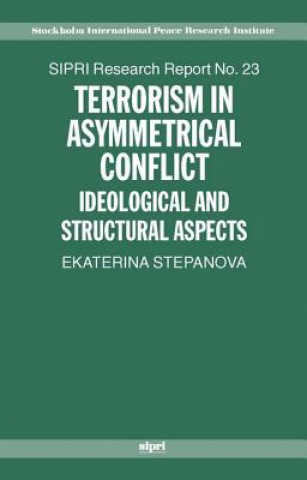
Doručenie
Nákupný poradca





Nehodí sa? Žiadny problém! U nás môžete do 30 dní vrátiť
 Darčekový poukaz
v ľubovoľnej hodnote
Darčekový poukaz
v ľubovoľnej hodnote
S darčekovým poukazom nešliapnete vedľa. Obdarovaný si za darčekový poukaz môže vybrať čokoľvek z našej ponuky.
Terrorism in Asymmetrical Conflict
 Angličtina
Angličtina
 253 b
253 b
30 dní na vrátenie tovaru
Mohlo by vás tiež zaujímať


The book's main focus is on extremist ideologies and structural capabilities of violent non-state actors that employ terrorist means. Ideologies and organizational patterns are seen as the main comparative advantages of such groups in an asymmetrical confrontation at all levels, from the local to the global. Resolution of the key issues of the armed conflict is seen as essential, but this is not sufficient to undermine the foundations of terrorism generated by that conflict, unless the structural capabilities of militant groups are fully disrupted and the role of extremist ideologies in driving their terrorist activities is neutralized. With its central focus on Islamist terrorism, the book argues that the quasi-religious, supra-national ideology of violent Islamism, especially in its most ambitious transnational forms, cannot be effectively counterbalanced at the ideological level either by Western democratic secularism or by the use of moderate versions of Islam itself. The author concludes that unless transnational violent Islamism is, first, 'nationalized' and, second, transformed in organizational terms through its being coopted into a more regular political process, it is unlikely to become amenable to persuasion or any external influence, let alone to be destroyed by the repression on which it thrives. The study also proposes an original typology of terrorism based on the overall level of a militant group's goals and the extent to which its terrorist activities are linked to a broader armed conflict. It combines qualitative research with the analysis of available data on trends in modern terrorism and the use of primary sources and writings.
Informácie o knihe
 Angličtina
Angličtina
Kategórie




 Ako nakupovať
Ako nakupovať


























